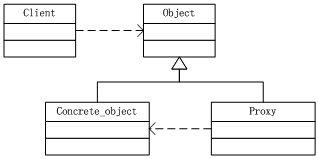- Python 的内置函数 property
Python内建函数列表>Python的内置函数propertyPython的内置函数property()是一个非常重要的工具,用于管理类属性的访问。它提供了一种优雅的方式来定义属性访问器(getter)、设置器(setter)和删除器(deleter)方法,同时保持简洁的接口。基本用法classPerson:def__init__(self,name):self._name=name@prope
- Python 的内置函数 print
Python内建函数列表>Python的内置函数printPython的内置函数print()是编程中最常用的输出函数之一,主要用于将指定的内容输出到标准输出设备(通常是控制台)。它的基本语法如下:print(*objects,sep='',end='\n',file=sys.stdout,flush=False)参数详解:*objects:可接收多个对象参数,会依次打印这些对象。例如:print
- springboot集成达梦数据库,取消MySQL数据库,解决问题和冲突
执笔诉情殇〆
数据库springbootmysql达梦
一、驱动与连接配置更换JDBC驱动在pom.xml中移除MySQL驱动,添加达梦驱动(版本根据DM数据库选择):com.damengDmJdbcDriver8.1.2.141修改数据源配置#application.yml中配置达梦连接(注意模式名大小写敏感):spring:datasource:driver-class-name:dm.jdbc.driver.DmDriverurl:jdbc:dm
- element 消息提示始终只出现一个
孔唯一
vuejavascriptvue.js前端elementui
原理就不多解释了直接上代码新建js文件用来存放一下代码(js名字可以根据自己喜好命名)我这里直接命名为了message.jsmessage.js//单独引入Message引入之前一定要确定element已经安装import{Message}from'element-ui';letmessageInstance=null;constresetMessage=(options)=>{if(messag
- element UI防止多个message弹窗,el-message提示只显示最后一个
不怕不管
elementUIvuejsvue.jshtml
单独一个文件重写messageimport{Message}from'element-ui'letmessageInstance=nullconstresetMessage=(options)=>{if(messageInstance){messageInstance.close()}messageInstance=Message(options)};['error','success','inf
- 如何让Element UI的Message消息提示每次只弹出一个
ElementUI的Message消息提示是点击一次触发一次的。在封装接口中调用失败会返回多个弹窗,导致很不友好,所以就出了一下参考解决方案import{Message}from'element-ui'constshowMessage=Symbol('showMessage')classDonMessage{success(options,single=true){this[showMessage
- Java基础流程控制习题练习示例含代码
InnovatorX
#Java基础进阶java开发语言intellij-idea算法
1、【嵌套循环】使用双层for循环,在控制台打印出一个四行五列的长方形,效果如下:@@@@@@@@@@@@@@@@@@@@publicclassDemo1{publicstaticvoidmain(String[]args){for(inti=0;i1500?"可以":"不可以";System.out.println("李雷"+want+"以旧换新");}}6、【三元运算符】让用户依次录入三个整数
- BM2 链表内指定区间反转
目录题目链接题目解题思路代码题目链接链表内指定区间反转_牛客题霸_牛客网题目解题思路只是比第一题多了一个范围,有两个思路一:先移动到要逆序的位置前一个固定,然后逐个往后移动并且讲当前位置的指针移动到固定位置的相邻就近的后面即可二:拼接的方法,截图前面不需要逆序的,中间的调用逆序方法,截取后面需要逆序的最后拼接即可代码法一importjava.util.*;/**publicclassListNod
- 解决 Spring Boot 对 Elasticsearch 字段没有小驼峰映射的问题
大只鹅
springbootelasticsearch后端
场景重现在使用MyBatis/Mybatis-Plus框架对MySQL操作时习惯了字段名小驼峰映射,然而在操作Elasticsearch时发现字段名没有小驼峰映射。解决方法1.使用`ObjectMapper`手动转换:这是最直接也最常用的方法。在SpringBoot应用中使用`ObjectMapper`将从Elasticsearch获取的数据进行转换,将下划线命名转换为小驼峰命名。importco
- leetcode动态规划—子序列系列
刷完之后,写的总结经验1、首先是子序列问题、子串问题、子数组问题,一定要搞清楚dp数组里是否是严格结尾2、其次是dp数组的定义,可以为了方便初始化而特殊处理定义一下lc300最长递增子序列初始化为1而非0,因为最长递增子序列最短为1无需连续,则可以从前面任意字串尾部续上,需要遍历以【0】-【i-1】为结尾的字串最后输出的是dp[0]~dp[n-1]中的最大值classSolution:deflen
- 一天两道力扣(1)
薰衣草2333
leetcodeleetcode算法职场和发展
解法1:classSolution(object):defgetIntersectionNode(self,headA,headB):A,B=headA,headBwhile(A!=B):A=A.nextifAelseheadBB=B.nextifBelseheadAreturnA解析:简单来说就是两个人同时走路,相遇的点就是交叉点,因为相遇了就说明路程一样,两次循环找到交叉点。解法2:class
- springboot 中使用 websocket
九伯都
springbootwebsocket后端
第一步:开启websocket@Configuration@EnableWebSocketpublicclassWebSocketConfigimplementsWebSocketConfigurer{@OverridepublicvoidregisterWebSocketHandlers(WebSocketHandlerRegistryregistry){//其他WebSocket处理器的注册(
- java arthas redefine实现热替换某个类
master-dragon
#java类加载和gcjavaarthas
简单的看下arthasredefine类的效果,需要注意redefine的class不能修改、添加、删除类的field和method,包括方法参数、方法名称及返回值。redefine后的原来的类不能恢复,redefine有可能失败(比如增加了新的field),参考jdk本身的文档。redefine命令和jad/watch/trace/monitor/tt等命令会冲突。执行完redefine之后,如
- 修改SpringBoot生成的jar文件后重新打包
wovski
后端springbootjarjavac
前言在日常Java开发中,我们有时需要对已有的Java项目进行修改和重新打包,特别是当我们需要对编译后的class文件进行反编译修改时。本文将详细介绍如何使用javac命令配合-encoding和-cp参数编译Java代码,以及如何使用jar命令将修改后的文件重新打包到原有的JAR包中。一、使用javac命令编译Java代码1.基本命令格式javac-encodingUTF-8-cp"lib/*"
- php 魔术常量、魔术函数 和 $_SERVER变量
戴国进
#php笔试面试题
魔术常量__FILE__$_SERVER['SCRIPT_FILENAME']反映的是当前执行程序的绝对路径及文件名;__FILE__反映的是原始文件(被包含文件)的绝对路径及文件名。__LINE____CLASS____FUNCTION____METHOD__魔术函数__autoLoad()__clone()__toString()__GET()__SET()__CALL()//当对象访问不存在
- 替换springboot打好jar包中的class文件
org.springframework.bootspring-boot-maven-pluginspringbot项目中通常使用上述方法打成jar包后,直接通过java-jar来运行。这种方式打成jar包的结构如下:其中MANIFEST.MF内容如下:Manifest-Version:1.0Spring-Boot-Classpath-Index:BOOT-INF/classpath.idxImpl
- 魔术方法__call__
追逐此刻
pythonpython开发语言
__call__是一个特殊方法(也称为魔术方法),用于使一个类的实例能够像函数一样被调用。当定义了这个方法后,实例对象可以后接括号(即())来触发调用,这会让实例表现得像函数一样。使实例可调用:允许类的实例像函数一样被调用。保持状态:可以在多次调用之间保持实例的状态(因为实例可以存储属性)。实现装饰器:常用于实现装饰器类(DecoratorClass)。模拟函数行为:让对象具备函数的行为,同时保留
- 《前端开发者必看:IndexedDB海量数据查询提速秘籍》
程序猿阿伟
数据库oracle前端
IndexedDB作为强大的客户端存储方案,虽提供了大容量存储能力,然而当面对海量数据时,查询速度的优化成为亟待解决的难题,这不仅关乎应用性能,更直接影响用户体验。IndexedDB采用异步操作,以事务为核心,通过对象存储空间(ObjectStore)存储数据。其查询依赖于索引机制,索引类似书籍目录,能快速定位数据位置。例如,在一个包含大量用户信息的数据库中,若要查找特定用户,通过为用户ID建立索
- 冒泡排序及其优化方式
一、基本概念冒泡排序(BubbleSort)是一种简单的比较排序算法,它重复地遍历要排序的数列,一次比较两个元素,如果它们的顺序错误就把它们交换过来。核心思想:通过相邻元素的比较和交换,将较大的元素逐渐"浮"到数列的末端二、基础实现基础冒泡排序算法Java实现publicclassBubbleSort{publicstaticvoidbubbleSort(int[]arr){//外层循环控制排序轮
- python图像识别哪些库_利用ImageAI库只需几行python代码实现目标检测
weixin_39667398
python图像识别哪些库
什么是目标检测目标检测关注图像中特定的物体目标,需要同时解决解决定位(localization)+识别(Recognition)。相比分类,检测给出的是对图片前景和背景的理解,我们需要从背景中分离出感兴趣的目标,并确定这一目标的描述(类别和位置),因此检测模型的输出是一个列表,列表的每一项使用一个数组给出检出目标的类别和位置(常用矩形检测框的坐标表示)。通俗的说,ObjectDetection的目
- 实训项目记录 | 7.3
敲代码娶不了六花
springcloudmybatisspringbootjavamavenintellijidea
7.3.10:14在发送邮件类SendMess添加自动获取ip和端口方法//获取服务器地址(本机IP+端口)privateStringgetServerAddress()throwsException{if(cachedIpAddr!=null)returncachedIpAddr;//已经算过直接用Stringip=null;//遍历所有网卡,找到一个非回环、非虚拟机、非docker的有效IPE
- posman-4.7.0 - API调试利器
posman-4.7.0-API调试利器posman-4.7.0-Crx4Chrome.com.rar项目地址:https://gitcode.com/open-source-toolkit/5f470资源简介欢迎使用Postman4.7.0版本,这款被誉为后台API开发神器的工具,是每个开发者必备的调试利器。无论你是进行GET、POST、PUT、DELETE等HTTP请求,还是需要对各种API接
- JS 使用节点实现简单购物车数量和金额
凌冰_
JS
一、购物车中商品数量二、计算金额HTML页面:购物车序号商品名称数量单价小计1羊肉串5.005.002草莓奶茶9.009.003饼干20.1020.104葡萄8.058.05共计消费:¥42.15元JS脚本//add+varadds=document.getElementsByClassName("add");//循环for(vari=0;itoFixed(2)this.parentNode.ne
- 10、java语法糖
编译期处理:语法糖(即java编译器把。java的源码编译成。class字节码的过程中,自动生成和转换的一些代码,主要是为了减轻程序员的负担,算是java编译器给我们的一个额外福利-给糖吃)默认构造器:调用父类Object的无参构造方法自动拆装箱:基本类型和包装类型之间的来回转换(jdk5以后)泛型集合取值:泛型也是在jdk5开始加入的特性,但java在编译泛型代码后会执行泛型擦除的动作,即泛型信
- 深入理解JVM - 编译期/运行期优化
json_it学习笔记
深入理解JVM编译优化虚拟机
----------------------------编译期优化--------------------------------------1、概述(编译期)Java语言的“编译期”其实是一段“不确定”的操作过程,因为它可能是指一个前端编译器(Javac编译器)把Java文件转变为class文件的过程;也可能是指虚拟机的后端运行期编译器(JIT编译器)把字节码转变为机器码的过程;还可能是指使用静
- [Pytest] [Part 2]增加 log功能
思则变
pytestpython开发语言
开始实现需求之前先做个log类,可以给其他模块使用,也方便以后修改log类的功能和属性。使用的是python中的logging包来进行简单的封装,具体代码如下importloggingimportsysclassTefLogger:def__init__(self,logger_name='TEST_FRAMEWORK'):self.logger=logging.getLogger(logger_
- Python列表函数
蔬菜味的牛牛
Python基础列表函数
Python列表的相关函数@TOCclass=[1,2,7,2,5,6,2]class.append(3);class.insert(3,11);class.pop(2)//注意此处是根据位置来删除元素;class.remove(7)//根据元素值来删除;q=class.remove(3);print(q);此时输出的是NULL;delclass[5]//删除指定值,q=delclass[5];p
- day41
m0_62568655
python训练营python
#原始模型(2层卷积)classOriginalCNN(nn.Module):def__init__(self):super().__init__()self.conv1=nn.Conv2d(1,16,3)self.conv2=nn.Conv2d(16,32,3)self.fc=nn.Linear(32*5*5,10)defforward(self,x):x=torch.relu(self.con
- maven详解
Maven是一个广泛使用的自动化构建工具,主要用于Java项目的构建、依赖管理和项目信息管理。它由Apache软件基金会维护,旨在简化Java项目的开发流程,提高开发效率,并促进团队协作。Maven的核心是项目对象模型(ProjectObjectModel,POM)。POM是一个XML文件(pom.xml),用于描述项目的结构、依赖、插件配置等。每个Maven项目都有一个唯一的pom.xml文件,
- 类加载生命周期与内存区域详解
类加载生命周期与内存区域详解Java类加载的生命周期包括加载、验证、准备、解析、初始化五个阶段,每个阶段在内存中的存储区域和赋值机制各有不同。以下是详细解析:一、类加载生命周期阶段1.加载(Loading)内存区域:方法区:存储类的元数据(如类结构、字段、方法信息)堆:生成对应的java.lang.Class对象赋值机制:通过类加载器读取字节码文件(如.class)将字节码转换为方法区的二进制数据
- mongodb3.03开启认证
21jhf
mongodb
下载了最新mongodb3.03版本,当使用--auth 参数命令行开启mongodb用户认证时遇到很多问题,现总结如下:
(百度上搜到的基本都是老版本的,看到db.addUser的就是,请忽略)
Windows下我做了一个bat文件,用来启动mongodb,命令行如下:
mongod --dbpath db\data --port 27017 --directoryperdb --logp
- 【Spark103】Task not serializable
bit1129
Serializable
Task not serializable是Spark开发过程最令人头疼的问题之一,这里记录下出现这个问题的两个实例,一个是自己遇到的,另一个是stackoverflow上看到。等有时间了再仔细探究出现Task not serialiazable的各种原因以及出现问题后如何快速定位问题的所在,至少目前阶段碰到此类问题,没有什么章法
1.
package spark.exampl
- 你所熟知的 LRU(最近最少使用)
dalan_123
java
关于LRU这个名词在很多地方或听说,或使用,接下来看下lru缓存回收的实现
1、大体的想法
a、查询出最近最晚使用的项
b、给最近的使用的项做标记
通过使用链表就可以完成这两个操作,关于最近最少使用的项只需要返回链表的尾部;标记最近使用的项,只需要将该项移除并放置到头部,那么难点就出现 你如何能够快速在链表定位对应的该项?
这时候多
- Javascript 跨域
周凡杨
JavaScriptjsonp跨域cross-domain
- linux下安装apache服务器
g21121
apache
安装apache
下载windows版本apache,下载地址:http://httpd.apache.org/download.cgi
1.windows下安装apache
Windows下安装apache比较简单,注意选择路径和端口即可,这里就不再赘述了。 2.linux下安装apache:
下载之后上传到linux的相关目录,这里指定为/home/apach
- FineReport的JS编辑框和URL地址栏语法简介
老A不折腾
finereportweb报表报表软件语法总结
JS编辑框:
1.FineReport的js。
作为一款BS产品,browser端的JavaScript是必不可少的。
FineReport中的js是已经调用了finereport.js的。
大家知道,预览报表时,报表servlet会将cpt模板转为html,在这个html的head头部中会引入FineReport的js,这个finereport.js中包含了许多内置的fun
- 根据STATUS信息对MySQL进行优化
墙头上一根草
status
mysql 查看当前正在执行的操作,即正在执行的sql语句的方法为:
show processlist 命令
mysql> show global status;可以列出MySQL服务器运行各种状态值,我个人较喜欢的用法是show status like '查询值%';一、慢查询mysql> show variab
- 我的spring学习笔记7-Spring的Bean配置文件给Bean定义别名
aijuans
Spring 3
本文介绍如何给Spring的Bean配置文件的Bean定义别名?
原始的
<bean id="business" class="onlyfun.caterpillar.device.Business">
<property name="writer">
<ref b
- 高性能mysql 之 性能剖析
annan211
性能mysqlmysql 性能剖析剖析
1 定义性能优化
mysql服务器性能,此处定义为 响应时间。
在解释性能优化之前,先来消除一个误解,很多人认为,性能优化就是降低cpu的利用率或者减少对资源的使用。
这是一个陷阱。
资源时用来消耗并用来工作的,所以有时候消耗更多的资源能够加快查询速度,保持cpu忙绿,这是必要的。很多时候发现
编译进了新版本的InnoDB之后,cpu利用率上升的很厉害,这并不
- 主外键和索引唯一性约束
百合不是茶
索引唯一性约束主外键约束联机删除
目标;第一步;创建两张表 用户表和文章表
第二步;发表文章
1,建表;
---用户表 BlogUsers
--userID唯一的
--userName
--pwd
--sex
create
- 线程的调度
bijian1013
java多线程thread线程的调度java多线程
1. Java提供一个线程调度程序来监控程序中启动后进入可运行状态的所有线程。线程调度程序按照线程的优先级决定应调度哪些线程来执行。
2. 多数线程的调度是抢占式的(即我想中断程序运行就中断,不需要和将被中断的程序协商)
a)
- 查看日志常用命令
bijian1013
linux命令unix
一.日志查找方法,可以用通配符查某台主机上的所有服务器grep "关键字" /wls/applogs/custom-*/error.log
二.查看日志常用命令1.grep '关键字' error.log:在error.log中搜索'关键字'2.grep -C10 '关键字' error.log:显示关键字前后10行记录3.grep '关键字' error.l
- 【持久化框架MyBatis3一】MyBatis版HelloWorld
bit1129
helloworld
MyBatis这个系列的文章,主要参考《Java Persistence with MyBatis 3》。
样例数据
本文以MySQL数据库为例,建立一个STUDENTS表,插入两条数据,然后进行单表的增删改查
CREATE TABLE STUDENTS
(
stud_id int(11) NOT NULL AUTO_INCREMENT,
- 【Hadoop十五】Hadoop Counter
bit1129
hadoop
1. 只有Map任务的Map Reduce Job
File System Counters
FILE: Number of bytes read=3629530
FILE: Number of bytes written=98312
FILE: Number of read operations=0
FILE: Number of lar
- 解决Tomcat数据连接池无法释放
ronin47
tomcat 连接池 优化
近段时间,公司的检测中心报表系统(SMC)的开发人员时不时找到我,说用户老是出现无法登录的情况。前些日子因为手头上 有Jboss集群的测试工作,发现用户不能登录时,都是在Tomcat中将这个项目Reload一下就好了,不过只是治标而已,因为大概几个小时之后又会 再次出现无法登录的情况。
今天上午,开发人员小毛又找到我,要我协助将这个问题根治一下,拖太久用户难保不投诉。
简单分析了一
- java-75-二叉树两结点的最低共同父结点
bylijinnan
java
import java.util.LinkedList;
import java.util.List;
import ljn.help.*;
public class BTreeLowestParentOfTwoNodes {
public static void main(String[] args) {
/*
* node data is stored in
- 行业垂直搜索引擎网页抓取项目
carlwu
LuceneNutchHeritrixSolr
公司有一个搜索引擎项目,希望各路高人有空来帮忙指导,谢谢!
这是详细需求:
(1) 通过提供的网站地址(大概100-200个网站),网页抓取程序能不断抓取网页和其它类型的文件(如Excel、PDF、Word、ppt及zip类型),并且程序能够根据事先提供的规则,过滤掉不相干的下载内容。
(2) 程序能够搜索这些抓取的内容,并能对这些抓取文件按照油田名进行分类,然后放到服务器不同的目录中。
- [通讯与服务]在总带宽资源没有大幅增加之前,不适宜大幅度降低资费
comsci
资源
降低通讯服务资费,就意味着有更多的用户进入,就意味着通讯服务提供商要接待和服务更多的用户,在总体运维成本没有由于技术升级而大幅下降的情况下,这种降低资费的行为将导致每个用户的平均带宽不断下降,而享受到的服务质量也在下降,这对用户和服务商都是不利的。。。。。。。。
&nbs
- Java时区转换及时间格式
Cwind
java
本文介绍Java API 中 Date, Calendar, TimeZone和DateFormat的使用,以及不同时区时间相互转化的方法和原理。
问题描述:
向处于不同时区的服务器发请求时需要考虑时区转换的问题。譬如,服务器位于东八区(北京时间,GMT+8:00),而身处东四区的用户想要查询当天的销售记录。则需把东四区的“今天”这个时间范围转换为服务器所在时区的时间范围。
- readonly,只读,不可用
dashuaifu
jsjspdisablereadOnlyreadOnly
readOnly 和 readonly 不同,在做js开发时一定要注意函数大小写和jsp黄线的警告!!!我就经历过这么一件事:
使用readOnly在某些浏览器或同一浏览器不同版本有的可以实现“只读”功能,有的就不行,而且函数readOnly有黄线警告!!!就这样被折磨了不短时间!!!(期间使用过disable函数,但是发现disable函数之后后台接收不到前台的的数据!!!)
- LABjs、RequireJS、SeaJS 介绍
dcj3sjt126com
jsWeb
LABjs 的核心是 LAB(Loading and Blocking):Loading 指异步并行加载,Blocking 是指同步等待执行。LABjs 通过优雅的语法(script 和 wait)实现了这两大特性,核心价值是性能优化。LABjs 是一个文件加载器。RequireJS 和 SeaJS 则是模块加载器,倡导的是一种模块化开发理念,核心价值是让 JavaScript 的模块化开发变得更
- [应用结构]入口脚本
dcj3sjt126com
PHPyii2
入口脚本
入口脚本是应用启动流程中的第一环,一个应用(不管是网页应用还是控制台应用)只有一个入口脚本。终端用户的请求通过入口脚本实例化应用并将将请求转发到应用。
Web 应用的入口脚本必须放在终端用户能够访问的目录下,通常命名为 index.php,也可以使用 Web 服务器能定位到的其他名称。
控制台应用的入口脚本一般在应用根目录下命名为 yii(后缀为.php),该文
- haoop shell命令
eksliang
hadoophadoop shell
cat
chgrp
chmod
chown
copyFromLocal
copyToLocal
cp
du
dus
expunge
get
getmerge
ls
lsr
mkdir
movefromLocal
mv
put
rm
rmr
setrep
stat
tail
test
text
- MultiStateView不同的状态下显示不同的界面
gundumw100
android
只要将指定的view放在该控件里面,可以该view在不同的状态下显示不同的界面,这对ListView很有用,比如加载界面,空白界面,错误界面。而且这些见面由你指定布局,非常灵活。
PS:ListView虽然可以设置一个EmptyView,但使用起来不方便,不灵活,有点累赘。
<com.kennyc.view.MultiStateView xmlns:android=&qu
- jQuery实现页面内锚点平滑跳转
ini
JavaScripthtmljqueryhtml5css
平时我们做导航滚动到内容都是通过锚点来做,刷的一下就直接跳到内容了,没有一丝的滚动效果,而且 url 链接最后会有“小尾巴”,就像#keleyi,今天我就介绍一款 jquery 做的滚动的特效,既可以设置滚动速度,又可以在 url 链接上没有“小尾巴”。
效果体验:http://keleyi.com/keleyi/phtml/jqtexiao/37.htmHTML文件代码:
&
- kafka offset迁移
kane_xie
kafka
在早前的kafka版本中(0.8.0),offset是被存储在zookeeper中的。
到当前版本(0.8.2)为止,kafka同时支持offset存储在zookeeper和offset manager(broker)中。
从官方的说明来看,未来offset的zookeeper存储将会被弃用。因此现有的基于kafka的项目如果今后计划保持更新的话,可以考虑在合适
- android > 搭建 cordova 环境
mft8899
android
1 , 安装 node.js
http://nodejs.org
node -v 查看版本
2, 安装 npm
可以先从 https://github.com/isaacs/npm/tags 下载 源码 解压到
- java封装的比较器,比较是否全相同,获取不同字段名字
qifeifei
非常实用的java比较器,贴上代码:
import java.util.HashSet;
import java.util.List;
import java.util.Set;
import net.sf.json.JSONArray;
import net.sf.json.JSONObject;
import net.sf.json.JsonConfig;
i
- 记录一些函数用法
.Aky.
位运算PHP数据库函数IP
高手们照旧忽略。
想弄个全天朝IP段数据库,找了个今天最新更新的国内所有运营商IP段,copy到文件,用文件函数,字符串函数把玩下。分割出startIp和endIp这样格式写入.txt文件,直接用phpmyadmin导入.csv文件的形式导入。(生命在于折腾,也许你们觉得我傻X,直接下载人家弄好的导入不就可以,做自己的菜鸟,让别人去说吧)
当然用到了ip2long()函数把字符串转为整型数
- sublime text 3 rust
wudixiaotie
Sublime Text
1.sublime text 3 => install package => Rust
2.cd ~/.config/sublime-text-3/Packages
3.mkdir rust
4.git clone https://github.com/sp0/rust-style
5.cd rust-style
6.cargo build --release
7.ctrl
